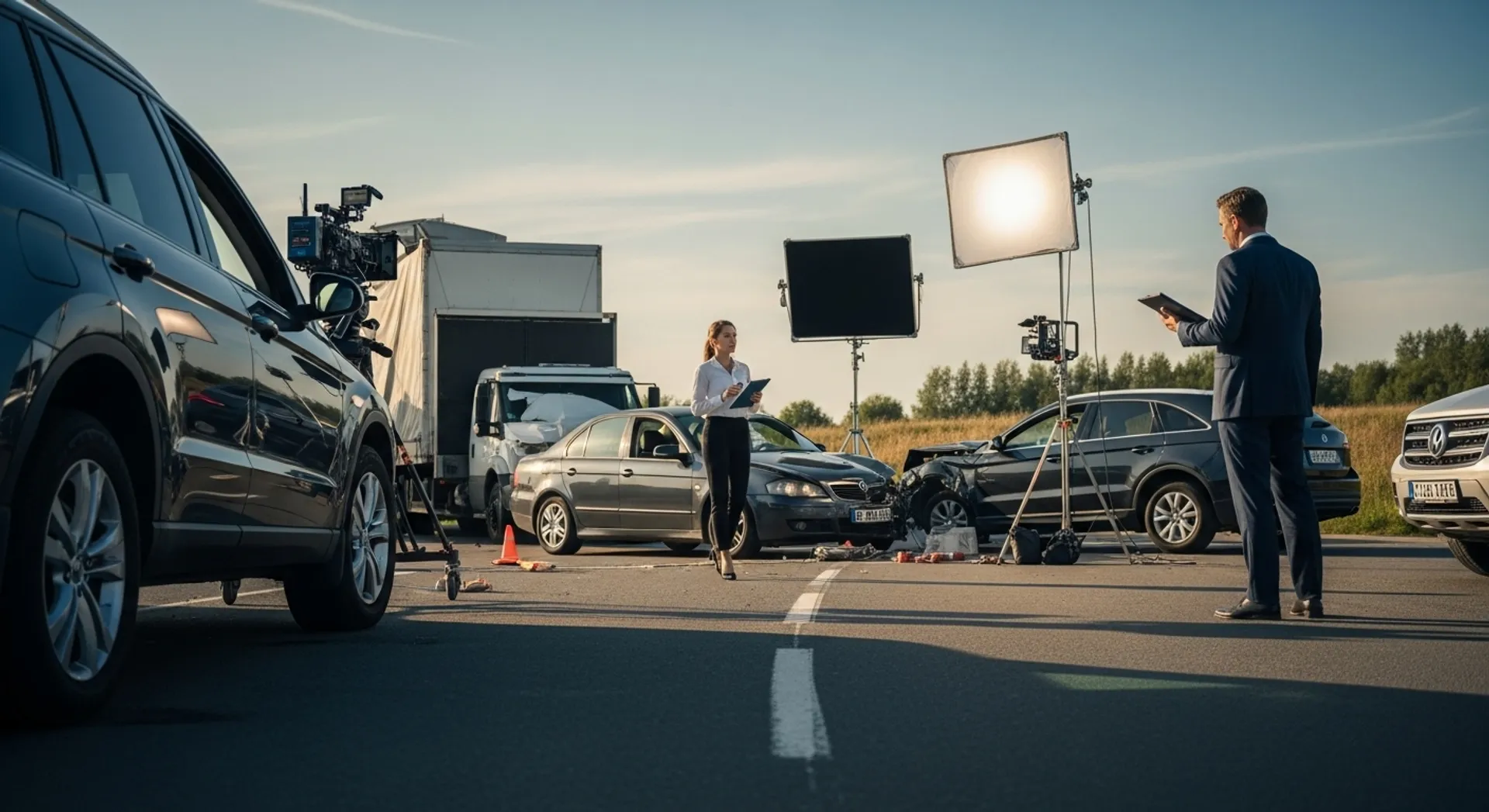Road accidents during film productions can result in serious consequences, both for the filmmakers and the production company. From the safety of the cast and crew to legal responsibilities and insurance claims, filmmakers need to be prepared for the potential liabilities they may face in the event of an accident. In this post, we’ll explore the legal implications of road accidents on film sets and what production teams can do to minimize risks.
Legal Responsibilities of Filmmakers
Filmmakers are responsible for ensuring the safety of their crew and cast, which includes making sure that all safety protocols are in place during filming, particularly when road accidents are a possibility. From hiring skilled drivers to maintaining vehicles, there are many aspects that filmmakers must take into account. In the event of an accident, the filmmaker’s duty of care extends to securing proper insurance coverage and protecting the crew from harm.
Duty of Care for Crew and Cast
Filmmakers have a legal obligation to ensure the safety of the crew and cast members, which involves implementing necessary safety measures before filming begins. This includes hiring qualified drivers, inspecting vehicles to ensure they are roadworthy, and obtaining appropriate insurance. Failure to take these steps may result in liability for injuries caused by road accidents.
Vehicle Safety and Road Conditions
Filmmakers should take into consideration road conditions and the potential for hazardous driving situations. For example, high-speed chase scenes or stunt driving increase the likelihood of accidents. Prior to filming, it’s critical to assess the roads where scenes will be shot and determine whether additional precautions, such as road closures or police presence, are necessary.
Types of Legal Liabilities in Road Accidents
When a road accident occurs on a film set, several legal liabilities can arise. These may include personal injury claims, property damage claims, and even criminal charges depending on the severity of the accident. Below, we’ll break down the common legal risks filmmakers face and how to avoid them.
Personal Injury Claims
If someone is injured as a result of a road accident during filming, the injured party may file a personal injury lawsuit. The production company, filmmakers, and other parties involved may be held liable for damages if negligence or unsafe practices were involved. Personal injury claims may cover medical expenses, lost wages, and compensation for pain and suffering.
Property Damage Claims
Accidents can also result in significant property damage, whether it’s a vehicle or a set. In some cases, the damage may extend to public property, such as road signs, traffic lights, or fences. If property damage occurs, the responsible party will need to cover the cost of repairs or replacements. This is another reason why securing proper insurance is essential.
Criminal Liability
In cases where reckless driving, drug or alcohol use, or other criminal behavior contributed to the accident, filmmakers and crew members may face criminal charges. This is particularly true if safety laws or regulations were intentionally ignored, or if there was a clear disregard for public safety. Filmmakers should always comply with local traffic laws to avoid criminal liability.
How to Minimize Legal Risks on Film Sets
While road accidents are sometimes unavoidable, there are several measures filmmakers can take to minimize the legal risks associated with them. By adhering to best practices, implementing safety protocols, and securing the proper insurance coverage, filmmakers can protect themselves and their productions from potential lawsuits.
Hire Experienced Drivers
One of the simplest yet most effective ways to reduce the risk of accidents on film sets is to hire qualified and experienced drivers. Whether the scene involves high-speed chases or simple vehicle movements, skilled drivers are less likely to make mistakes that lead to accidents. It’s essential to verify the driver’s credentials and experience before allowing them to perform any stunts or maneuvers on set.
Conduct Thorough Safety Briefings
Before filming any scenes that involve vehicles, filmmakers should conduct safety briefings with all cast and crew members. These briefings should cover the potential hazards involved in the scene, safe driving techniques, and what to do in the event of an emergency. This ensures everyone on set is aware of their responsibilities and is prepared to react quickly if an accident occurs.
Secure Adequate Insurance Coverage
Insurance is an essential part of any film production. In the case of road accidents, proper coverage can help filmmakers avoid financial ruin. Filmmakers should consult with an insurance expert to ensure that they have the right policies in place to cover vehicle damage, injuries, and any other potential liabilities. This may include liability insurance, workers’ compensation, and vehicle insurance.
Work with Law Enforcement and Local Authorities
If the production involves high-risk driving, working with local law enforcement and authorities can help ensure a safer filming environment. In some cases, police may be able to assist with road closures or provide security during high-speed scenes. Additionally, authorities can help verify that all necessary permits are obtained before filming on public roads.
Conclusion
Road accidents on film sets are not only dangerous but can also lead to costly legal consequences. Filmmakers need to understand their legal obligations and take steps to minimize risks, such as hiring experienced drivers, conducting safety briefings, and securing appropriate insurance. By doing so, they can protect their crew, minimize legal liabilities, and ensure that their film production proceeds smoothly.


